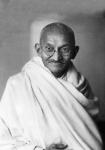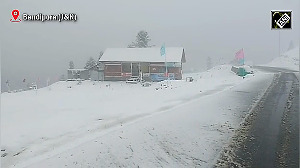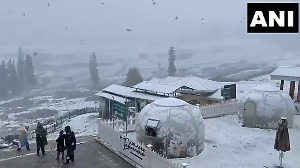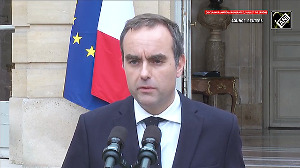Kolkata limped back to normalcy on Thursday morning after night curfew, clamped following Wednesday's widespread violence, was lifted in five police station areas.
"The city is returning to normal. Schools and colleges are opening. People have also resumed their normal life," Police Commissioner Gautam Mohan Chakrabarty told media persons.
There was no report of any fresh incident, but joint patrolling by the army and police was still continuing in the affected areas of Central Kolkata, he said, adding that a review meeting will be held to assess the situation.
"Right now we cannot say whether night curfew will be re-imposed. It will depend on the government's decision after an assessment of the latest situation," the police commissioner said.
The army was deployed in Park Street, Topsia, Beniapukur, Entally and Karaya after the situation spun out of control over a three-hour shut down programme that snowballed into an unprecedented violence. The night curfew was from 2200 hours to 0600 hours during which troops patrolled the streets.
The shutdown was called by the All India Minority Forum, a little known organisation, demanding cancellation of visa of controversial Bangladeshi writer Taslima Nasrin and in protest against the violence in Nandigram.
However, the issue of the deportation of Taslima Nasrin took centre stage as large number of local youths attacked the police without any provocation, fought day-long pitched battles and wrecked vehicles.
Police had to burst tear gas shells and resort to occasional lathicharge to control the attackers, but in vain. About 50 people, including 35 policemen and a few media persons, were injured while more than 30 vehicles, including private buses and an ambulance, were either set ablaze or damaged.
The mobs showered brickbats and bottles indiscriminately on the police and kept them on their toes by attacking them abruptly from every lane and bylane. Bricks, tube lights and other 'missiles' were also hurled on the police from rooftops of several houses, making the authorities suspect that the whole operation was premeditated.
The trouble halted traffic on several arterial roads, casting its impact almost on the entire city. Thousands of people were stranded during the busy office hours while hundreds of school children remained trapped for hours.
It also charged up tension in the city and threw open rumour mills leading even to adjournment of the Rajya Sabha in Delhi.
"It is the handiwork of some other people with vested interest. We did not want this violence and we condemn this," he said.
But he could not identify who else could have taken part in creating the trouble.
Ali, in league with Jamiat-e-Ulema-e-Hind and some religious leaders, had been demanding for quite some time deportation of Nasreen allegedly for defaming the Prophet in her novel Dwikhandito (divided). The book, however, had already been banned by the state government a few years ago.
The self-exiled Bangladeshi writer has been living in the city since 2004 with her appeal for granting Indian citizenship pending with the Union Home Ministry. The period of her visa is scheduled to lapse after February, 2008.
However, Jamiat leader Siddiqulla Chowdhury said his organisation was in no way involved in Wednesday's shutdown programme.





